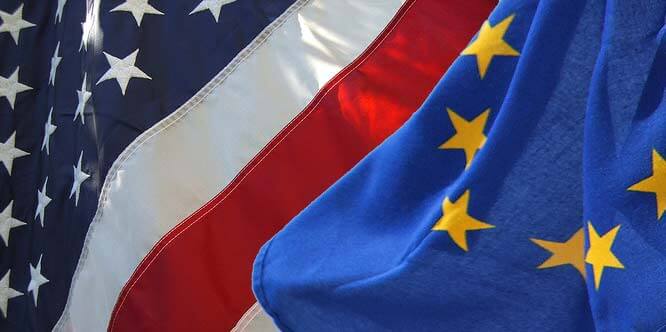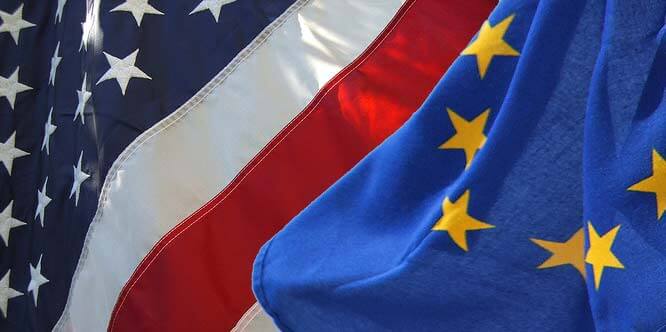This is the third in a Force Distance Times series on views of industrial policy from Europe. In the first of the series, Chris Cash of the UK Parliament’s China Research Group argued that the country’s new critical minerals strategy represented a comeback for industrial policy. In the second, Dr. Gustavo Piga wrote that an Italian economic policy to save Europe demands grappling with the “austerity trilemma.” Here, Mr. Reinhard Bütikofer of the European Parliament outlines a path for the Global Gateway initiative to become not only a reality, but also the foundation for a trusted connectivity network uniting, and strengthening, allies and partners.
In 2018, the Indonesian Finance Minister was asked publicly what she thought about the People’s Republic of China’s Belt and Road Initiative. Her response: “Give me an alternative and I’ll tell you what I think about it.”
At the time, Brussels had already published the EU-Asia Connectivity Strategy, but it proved to be a car without wheels. It never got going. Jean-Claude Juncker, in the waning days of his Commission presidency, successfully invested some political capital into promoting the connectivity concept and in September 2019, he signed a connectivity partnership with Japanese Prime Minister Abe at a major connectivity conference that the Commission organized in Brussels. But, when Ursula von der Leyen came into office shortly thereafter, connectivity was put on hold.
It took until September 2021 for the Commission President to propose a fresh start. In her State of the Union address of that month, she advocated the Global Gateway initiative. This remake of the earlier connectivity promoting efforts was clearly more ambitious: It was presented as a global program for infrastructure development cooperation, and the determination with which von der Leyen advocated this initiative, which she called “a signature policy for her geopolitical commission,” was promising. By the end of 2021, von der Leyen’s announcement was given programmatic substance with the publication of the Global Gateway strategy, which promised to invest up to 300 billion euros in the program over seven years. The public perception and the echo around Europe was very positive. But now, a year later, we are still waiting for real progress.
If Europe wants to rid itself of strategically relevant over-dependencies on China, then a systematic cooperation with like-minded countries through friendshoring efforts financed under the Global Gateway umbrella might become an indispensable tool.
In 2023, it will have been ten years since Xi Jinping announced his grandiose strategic plan of creating a Beijing-centred global connectivity network under the “One Belt One Road” title, later relabelled the Belt and Road Initiative. At the beginning, Western countries watched with disbelief. Some particularly naive leaders decided to ignore the geopolitical underpinnings of the effort, hoping that everyone might be better off in a world where China threw around billions of investment financing. In a second phase, a wave of criticism of China’s Belt and Road Initiative emerged both from the US and from around Europe because China’s projects often lacked economic and environmental sustainability, tended to create high levels of debt dependency, and because the overall approach was increasingly integrated into Xi Jinping’s assertive foreign policy and the PRC’s overall hegemonic dreams.
Thus arose the question of whether the US and/or Europe could provide an alternative, like the Indonesian Minister had asked. There have been efforts: The Trump administration developed the “Blue Dot Network” initiative, but then put it on the back burner. The Biden administration came up with the “Build Back Better World” initiative and forgot to do anything about it, dropping the term within less than a year. Then at the last G7 meeting, Biden came with a new headline: “Partnership for Global Infrastructure and Investment.” However, the major downside of the announcement was that he was not able to underpin such a promise with real money.
In the European Union at the same time, the support for Global Gateway has been quite substantial. The European Parliament has welcomed it; EU member states are all in favour; a big member state, like my own country, Germany, has been pushing hard to get it realized. The business community actively supports the effort: They are on the edge of their seats waiting for the program to get started in practice. Public opinion, as far as the topic has been recognized, has certainly also been positive. The EU has followed up on its connectivity partnership with Japan by signing a similar partnership with India, it has agreed on a ministerial statement with ASEAN countries on connectivity, and it has been negotiating with South Korea and Australia about cooperating in the field of connectivity. All the stars seem aligned, but Global Gateway still sits in the starting block.
The Global Gateway governance structure has not been decided. The Business Advisory Group that was promised in the strategy of last year is still to be created. Parts of the Commission bureaucracy still cling to the idea that maybe they could be successful in converting the Global Gateway initiative into just another development cooperation project, basically presenting old wine in new wineskins. The big connectivity forum, that was also announced last year, has been postponed seemingly ad calendas graecas.
And the fact that the President of the Commission Ursula von der Leyen just published an opinion piece together with the Prime Minister of Estonia under the title “How the EU’s Global Gateway will lead us to a more open world,” could be read as an indication that the perception of the state of play with regard to this important strategy in the Brussels halls of power differs quite a lot from the reality on the ground. Von der Leyen has been promising for some time that she will co-organize a summit with President Biden under his title of a “Partnership for Global Infrastructure and Investment.” But without putting more flesh on the bones of Europe’s own still very generic promises, that could just become another exercise in wishful thinking and empty rhetoric.
Economic dependencies that could be weaponized against European countries do not only exist vis-à-vis Russia. They exist to an even higher degree vis-à-vis China.
But the present moment offers new opportunity. Maybe, the recent very dramatic European experience with President Putin’s neo-imperialism and his willingness to weaponize economic dependency could provide the Global Gateway initiative with a new strategic relevancy. Economic dependencies that could be weaponized against European countries do not only exist vis-à-vis Russia. They exist to an even higher degree vis-à-vis China. There is no doubt that the Beijing regime would not hesitate to weaponize such dependencies if it saw the need. Beijing has done so in fact in many cases: In the cases of Australia, of Lithuania, the Czech Republic, Sweden, Norway, South Korea, Japan and other countries.
If Europe wants to rid itself of some strategically relevant over-dependencies on China, for instance where it concerns the supply of industrial raw materials, then a systematic cooperation with like-minded countries through friendshoring efforts financed under the Global Gateway umbrella might become an indispensable tool. Take rare earths as an example. Rare earths are not rare and rare earth mining can be done in many countries, but rare earth processing is increasingly monopolized by China.
If we just sit back and watch from the side-lines as this process continues, we will ignorantly allow China to develop a real industrial chokehold over our economies, because without these precious metals very few modern production technologies can be developed successfully. What if Global Gateway investment was used to help resource rich countries, with which we are partnering on the bases of like-mindedness, in developing alternative processing capabilities that could benefit them in developing their own industrial perspective and could help us in reducing a one-sided dependency? Developing such a perspective just on the basis of private investment is certainly a lost hope. But coming together to align our own European efforts with those of partners under a shared concept of trusted connectivity? That could have a real impact way beyond the sectoral importance of the investment.
Connectivity funding could also help develop important communication infrastructure, data centers, and deep-sea data cables on which our connections to the rest of the world will increasingly depend.
So, I come to the conclusion that the best prospect of finally getting Global Gateway going strong would be to understand that it must be turned into a tool that finances the external dimension of a European industrial policy cognizant of the need to diversify, to cut dependencies vis-à-vis authoritarian countries, and to find new ways of partnering with countries in the Global South towards sustainable development. Maybe, finally, this approach could make Global Gateway become a reality, not as a singular selfish European effort, but as part of a trusted connectivity network that includes all the partners mentioned above plus hopefully quite a few in addition.
Reinhard Bütikofer is Member (Greens/EFA), European Parliament (since 2009); Member, Committee on Foreign Affairs (AFET) as Greens/EFA Foreign Affairs Coordinator; Substitute Member, Committee on International Trade (INTA); Chair, European Parliament’s Delegation for Relations with the People’s Republic of China; Member, European Parliament’s Delegation for Relations with the United States of America; Substitute Member, ASEAN Delegation. Formerly: Co-Chair, European Green Party (2012-2019) and Co-Chair, German Green Party BÜNDNIS 90/DIE GRÜNEN (2002-2008).
(Photo by OpenDemoracy/Flickr)




